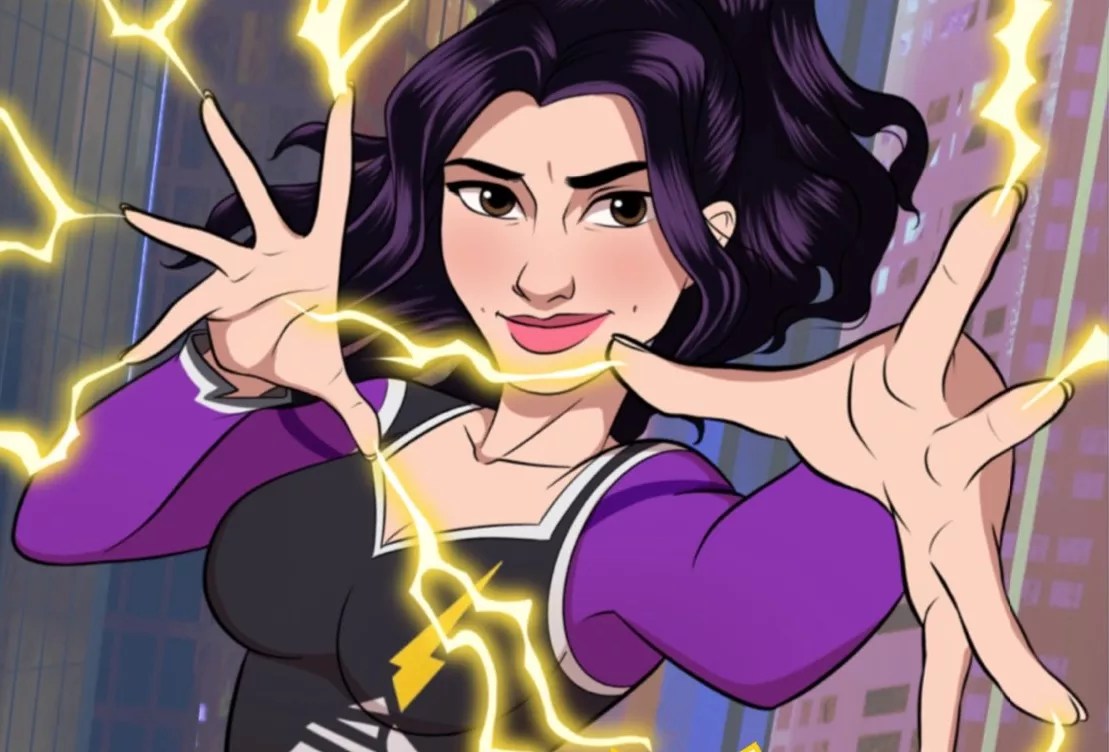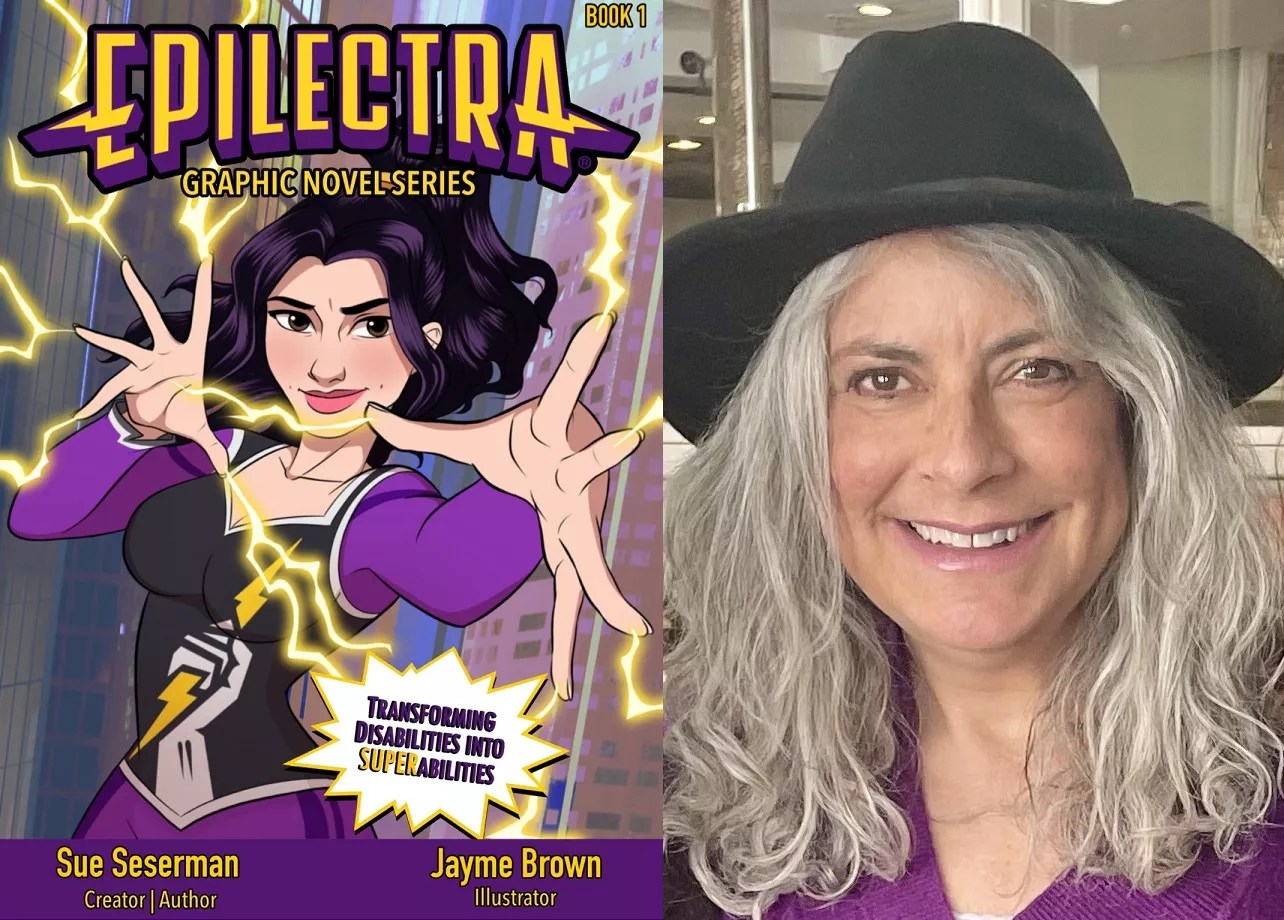
Dorrance Publishing

Audio By Carbonatix
In comic books, superheroes are often created by a mishap of science or the natural world – a radioactive spider bite, being too close to ground zero in a gamma blast, exposure to cosmic rays, sometimes just a bolt of lightning. But in the real world, getting struck by lightning doesn’t result in an invitation to join the Avengers or the Justice League. It usually means a considerable hospital stay, and maybe some lingering physical limitations.
Denver writer Sue Seserman’s new graphic novel, Epilectra: Book 1, walks both of these storylines, using a bolt of lightning not only to injure her characters but also to inspire her readers. Yes, the electrical charge in the origin story of Epilectra puts two of her protagonists in the hospital and causes epilepsy and paralysis – but it’s also the source of the powers they discover in the aftermath. In short, Seserman’s narrative, illustrated with a crisp style by former Disney artist Jayme Brown, isn’t just about dealing with physical conditions; it’s about celebrating the unlimited potential still inherent in those that have them.
A launch party for Epilectra – what Seserman is calling a “Superhero Celebration” – will be held, appropriately enough, at Access Gallery, the inclusive and fully accessible art space at 909 Santa Fe Drive, on Thursday, August 8. It’s open to “media, fans, friends and family,” and copies of the book will be available; a second event is planned for New York City this fall.

Sue Seserman and Epilectra: Book 1.
Sue Seserman
The idea came to Seserman because of a very personal experience she had a little over a decade ago – three grand mal seizures that led to a diagnosis of epilepsy. “It really came out of the blue,” says Seserman. “The first one was over Thanksgiving weekend in 2013. My kids were home from college, and we were all visiting family in Boston. I was in a car, and fortunately I was not driving at the time. I have no recollection of any of it, of course, except for waking up in the hospital. Which is how grand mal seizures usually go.” She’d go on to have two more – one on the ski slopes in the winter, the next in the summertime while she was in the pool. That was when she was told that it was time to see a neurologist.
Still, Seserman’s own origin story with epilepsy remains something of a mystery. “No one in my family has it. It can be genetic, but there are lots of different forms,” she says. She went to several hospitals, including the Mayo Clinic, looking for a reason why the condition had suddenly come on, but never got any definitive answers.
What followed was a search for the right pharmaceutical solution – a tough thing sometimes with epilepsy, since every case is unique in a lot of respects -and after a few years of suffering seizures about once every six weeks or so, Seserman finally hit the right combination. “I’ve now not had a seizure since October of 2019,” she beams.
Seserman has always been into volunteerism, and so it was only natural that she’d start to focus her efforts on the epileptic community. In talking to patients with conditions similar to her own, she says they all said similar things. Most important, many of them had given up on something when they were diagnosed: their education, a career path, even relationships. “I found that so sad,” she says. “And really unnecessary! There are so many ways to accommodate a condition like ours.”
Seserman responded by developing a pamphlet detailing educational alternatives, public transportation information, food delivery services and all the things they can tap into so they might take charge of their own lives. “It helped people for a while…and then COVID hit,” she says.
The forced isolation of the pandemic inspired Epilectra. “I had a lot of time on my hands,” Seserman recalls, “and I thought a lot about these patients I’d been working with. I wanted to do something, something that could move them from ‘I can’t’ to ‘I can.’ That’s when the idea for Epilectra, the character, came to me. A woman who could transform her disability into a superpower, a super-ability – and then went out into the world to do amazing things.”
Her daughter suggested that she turn it into a comic book. “From there, Epilectra grew. Other characters developed, and a backstory blossomed,” says Seserman, who adds that there’s already a Book 2 in development.
“I really want people to find a way to believe in themselves,” she says. “To find the power within themselves to find out the answers to questions they may have. Find ways to accomplish goals they may have. The motto of the superhero team in the book is ‘Your difference is your strength.’ I made that “difference” instead of “disability” purposefully. This is more than a book about disabilities. Everyone has something about themselves that they wish were different, or they feel embarrassed or unsure about. My hope is that Epilectra can reach everyone, but especially all those people who can and will find it most helpful.”
Epilectra: Book 1 debuts at the Superhero Celebration at Access Gallery, 909 Santa Fe Drive, from 5 to 7 p.m. on Thursday, August 8. The book is available for purchase now on the publisher’s website, and will soon be available at Amazon and Barnes & Noble bookstores nationwide.